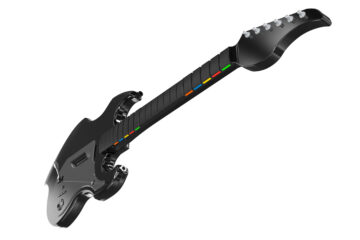Enlarge / Microsoft says it sees two clear peaks at the ends of a wire, with a nice energy separation between those and any other energy states. (credit: Microsoft)
So far, two primary quantum computing technologies have been commercialized. One type of hardware, called a transmon, involves superconducting wire loops linked to a resonator; it is used by companies like Google, IBM, and Rigetti. Companies like Quantinuum and IonQ have instead used individual ions held in light traps. At the moment, both technologies are in an awkward place. They’ve clearly been demonstrated to work, but they need some significant scaling and quality improvements before they can perform useful computations.
It may be a bit surprising to see that Microsoft is committed to an alternative technology called “topological qubits.” This technology is far enough behind other options that the company just announced it has worked out the physics to make a qubit. To understand Microsoft’s approach better, Ars talked to Microsoft engineer Chetan Nayak about the company’s progress and plans.
The foundation of a qubit
Microsoft is starting behind some competitors because the basic physics of its system weren’t entirely figured out. The company’s system relies on the controlled production of a “Majorana particle,” something that was only demonstrated to exist within the last decade (and even then, its discovery has been controversial).

